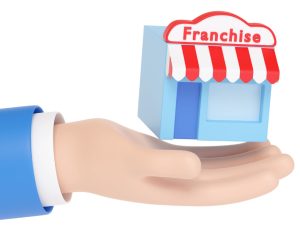These young professionals are either entering the workforce for the first time or are seeking direction now that they have about five to six years of meaningful experience. This article explores key strategies to inspire and engage this age group, fostering a positive and productive workplace.
Understanding the demographic
Individuals aged 21-30 are navigating significant life transitions, including career beginnings, further education, and personal development. They tend to value:
Meaningful work
This age group seeks purpose in their roles, often prioritizing companies with strong missions and values.
Work-Life balance
Flexibility is crucial, with many preferring arrangements that allow for personal time and well-being.
Growth opportunities
Continuous learning and career advancement are highly regarded, as they aim to develop skills and progress in their careers.
Effective leadership strategies include the following:
Foster open communication
Encourage dialogue
Create an environment where team members feel comfortable sharing ideas and feedback. Regular check-ins and open-door policies can help.
Be transparent
Sharing company goals and decisions builds trust and makes younger employees feel valued and included.
Embrace technology
Utilize digital tools
This generation is tech-savvy, so leveraging apps and platforms for collaboration can enhance productivity and engagement.
Provide training
Offering workshops on emerging technologies not only boosts skills but also shows investment in their professional growth.
Cultivate a positive culture
Promote inclusivity
Foster a culture that embraces diversity and inclusion, allowing all voices to be heard and respected.
Celebrate achievements
Recognize and celebrate both individual and team accomplishments to build morale and motivation.
Encourage autonomy
Empower decision-making
Allow employees to take ownership of their projects. This autonomy boosts confidence and fosters innovation.
Set clear goals
While autonomy is important, providing clear objectives helps guide efforts and maintains alignment with company goals.
Support professional development
Invest in learning
Offer opportunities for skill enhancement, such as mentorship programs, online courses, and workshops.
Create career pathways: Clearly outline potential career trajectories within the organization to keep employees motivated and engaged.
Promote well-being
Prioritize mental health: Implement programs that support mental health and work-life balance, such as flexible working hours or wellness initiatives.
Encourage breaks: Promote the importance of taking breaks and time off to recharge, helping to prevent burnout.
Conclusion
Leading individuals aged 21-30 requires a blend of empathy, flexibility, and innovation. Demonstrating empathy is not a sign of weakness – it shows that leaders are human. By understanding their unique perspectives and tailoring leadership approaches to meet their needs, organizations can cultivate a motivated and engaged workforce. Investing in the growth and well-being of this generation not only benefits the individuals but also enhances overall organizational success. As we move forward, adapting to the values of younger employees will be key in shaping resilient and dynamic teams. Give it a try and measure the results.








